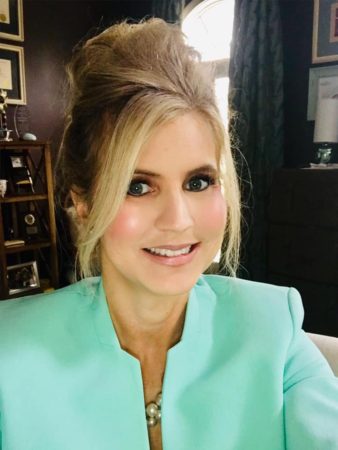With our help, Cynthia Chafin will complete the requirements for her PhD this year. She is conducting a study on caregiver self-care and needs our input. Please read more below including caregiver tips, and then respond to her survey. Her results may help you now and future caregivers.
Self-Care for the Caregiver
by Cynthia Chafin, MEd, MCHES®
What was I thinking? Five years ago, I decided to enroll in a PhD program knowing I would be a 50-something when I finished my program of studies several years later. Who does that? Probably the woman whose grandmother got her GED in her 50s and was still mowing her own lawn at 90. At that stage of my life, I had been around enough friends who were caregivers–and to a limited degree, had some caregiving duties myself–to see just how challenging being a caregiver could be. And how self-care was so desperately lacking at times.
Being in a health-focused field my interest turned to the health aspect of caregiving and how caregiving might impact the health of those who give so much to others. I asked myself time and time again how caregivers could better care for themselves?
Caregiver Self-Care Research Topic
I turned my curiosity of caregiver health and my own passion for health and wellness into my dissertation research topic. I hope to contribute positively toward this important group of people who often put themselves and their health last. To finish that research, I am challenged with collecting 500 completed surveys from caregivers for adults aged 65+ in a short window of time.
I hope some of The Caregiver’s Voice readers may find 25 minutes or so to complete the survey. [TCV Ed.: C’mon, we can do it. Let’s help Ms. Chafin earn her PhD!] The survey will remain open through 6/15/2023 and can be accessed here: https://mtsu.ca1.qualtrics.com/jfe/form/SV_bf8UWk7wogMKtdc. Eligibility requirements and other details are provided in the first few pages.
Caregivers’ Poor Health
The National Alliance for Caregiving (NAC) and AARP (2020) report that caregivers are often in poor health with 23% finding it hard to take care of their own health as well as 23% indicating that caregiving has made their health worse. What are some things as a caregiver you can do to promote self-care and better health and wellness for yourself? Here are some of the caregiver self-care tips I share with my health and wellness coaching practicum clients. Everyone deserves health and happiness, especially caregivers.
Self-Care for Caregivers
Compassionate Self-Awareness–It All Starts Here
Self-care starts with compassionate self-awareness. Do you show yourself the same kindness that you show to others? One way to be kind to yourself is to give yourself a few moments every day to do something that nourishes your body, mind, and spirit. This will be different for each person. It could be reading a few chapters of a new book, taking a nature walk (or even around the block), or calling a friend. It isn’t important WHAT it is, only that you do it. The hardest part sometimes is just getting started. Make a list of things that bring you joy and nourish your health and well-being. Commit to do one of the things from the list each day, even when you don’t feel like it or think you don’t have the time. With intentional effort, it is more likely to happen!

Sleep–Quality and Quantity Matter
How do you feel when you don’t get enough sleep? Or when you are logging plenty of sleep hours, but the sleep isn’t refreshing? Or maybe you just never feel rested, and the pace of the day leaves no time for relaxation. Our quality and quantity of sleep and the amount of rest can directly impact our health and how we feel. Sleep disturbances are common and may be caused by factors ranging from a recent increase in stress to underlying physical or mental conditions. Set a bedtime routine and stick with it! A great resource for sleep, sleep disorders, and promoting healthy sleep is the National Sleep Foundation.
Food and Nourishment–Fueling the Body Well
The food that we eat impacts our mental and physical well-being. This in turn can make a difference in how well we are able to care for those we love and how we carry out other daily activities. Meal planning is one key to avoiding last-minute snacks or less-than-healthy meals including fast-food stops. Google “Meal Planning for Caregivers” for a wealth of information online. Additional healthy tips include the ‘basics’ such as eating several small meals a day, drinking 8-10 glasses of water, and avoiding processed foods and sugars. Caregivers may be “stress eating.” Instead of taking time to sit down for a meal, caregiving pressures, tiredness, and even exhaustion, leads to unhealthy foods. Being mindful of the importance of healthy eating can go a long way towards making healthful choices in this area, even amidst the stresses of caregiving.
Managing Stress – A Simple Exercise
There is no question that caregiving can be stressful. While it isn’t possible to avoid stress, we can try to better manage it. A simple technique involves deep breathing. Find a quiet place, get comfortable, close your eyes, and begin focusing on your breathing. Breathe in while counting to five and slowly exhale to another five counts. If you find your thoughts drifting off to other things, remind yourself to focus on your breaths. Repeat this for 5-10 minutes. While it is ideal to do this exercise in a quiet, comfortable space, it can be done anywhere when you need a few moments to decompress.
These suggestions for caregiver self-care are a good start towards better health and wellness for those who give so much to others. May taking care of oneself become the norm and leave you better–and healthier–for it.
Thank you in advance to those who take time to complete a survey and help me reach my needed 500. [TCV Ed.: C’mon caregivers, let’s get this done—for ourselves and future caregivers. Here is the link again: https://mtsu.ca1.qualtrics.com/jfe/form/SV_bf8UWk7wogMKtdc.] I might just finish this research yet and truly make a difference in the lives of caregivers worldwide.
Happy, healthy caregiving!
Sources
A Time to Bloom Health and Wellness Coaching, LLC
Vanderbilt Health Coaching Program, Resources for Health and Wellness Coaches

Cynthia Chafin, M.Ed., MCHES® is a public health professional currently working in a university setting. She recently completed classroom health coach training from Vanderbilt Medical Center in Nashville, Tennessee. She is a doctoral student interested in caregiver health after seeing the toll caregiving can take on individual health and wellness.








